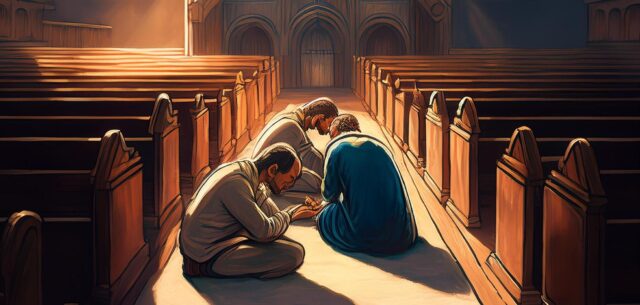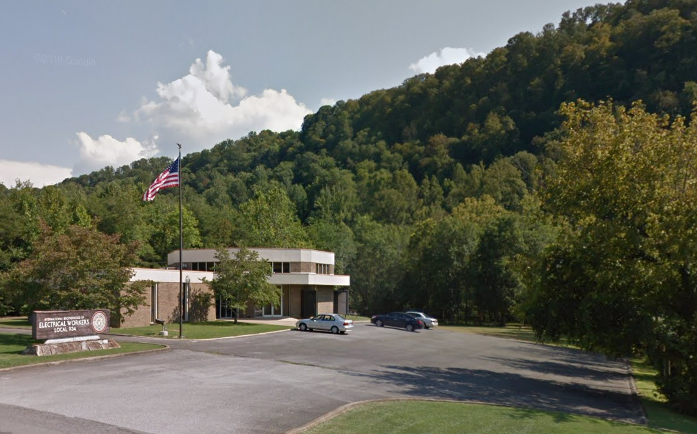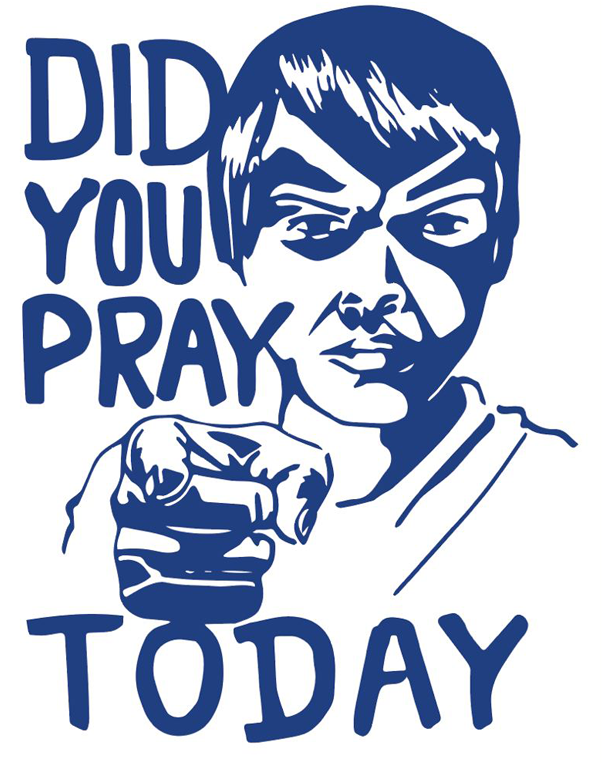
Religious Education


I remember wondering, as a kid, if there could be other groups of believers who kept all the holidays Old Testament festivals like we did, who attended church on Saturday (calling it the Sabbath) rather than Sunday, who had all the doctrine distinctives that our church had but had developed all this on their own apart from any of the WCG ministry. I knew that if God called people like our church taught, such a scenario was entirely possible, that he could call someone without providing direct access to our group. Herbert Armstrong always said after all, “Don’t believe me Believe your Bible,” and he always taught that everything that the church believed came directly from the Bible. So it is entirely logical that someone could arrive at the same conclusions as Armstrong, even without the aid of God calling them. Throw in that supernatural element, and it seemed almost unlikely that there wouldn’t be some other groups out there lurking about keeping the sabbath, paying tides, going to the Feast of Tabernacles, eschewing Christmas and Easter, but not formally part of our organization.
The data podcast on Church of God Network has gotten me to thinking about this. They claim that there are somewhere between 500,000 and 1.5 million Sabbatarian Christians in Madagascar. They bring up the idea that theoretically someone in India could be reading their Bible and reach the same conclusions that all the churches of God do, namely, that we should be going to church on Saturday and following Old Testament festivals and the like. They pondered if that might have already happened, and if they’re not English speakers, how in the world could the COG‘s existing in America get in touch with them or even know if their existence to help them in their spiritual development.
It is, of course, somewhat presumptuous to assume that they would need the spiritual development. It reeks of theological colonialism. If God is calling them, they don’t need any help from people here.
Yet that just speaks to the cognitive dissonance that provides the churches of God. God calls you, but he needs a little bit of help from literature and television programs. What’s amazing is that the hosts come right to the edge of this realization before backtracking:
Not only is this not the only day of salvation but it’s not our job to proselytize. So this conversation is not about going in and like, “Why aren’t people responding,” like this is the only day of salvation kind of thing. It’s more of, God does the calling, but God’s also not a respecter of persons, so you’d imagine the distribution as to where people are called would largely be either, I don’t want to say random, but dispersed based on something that has some sort of logical sense, if that make sense. Maybe you’d have one or two nations where, that would fall into this bucket, but to have a decent chunk of nations that are high population, low hostility, and a cultural presence of more mainstream Christian Western views that would raise a red flag of, “Okay well, it wouldn’t make sense that God wouldn’t call anyone in this nation.” Is there something about how this message is getting out? Maybe there’s a lot of response but it just independent groups who haven’t maybe reached out for affiliation.
They’re right there: they’re almost about to realize that if their theology about God calling people out of the world (and that being a precious and rare event), there should be people coming out of the world on their own. They shouldn’t any exposure to the various COGs literature or television shows or webinars. It should happen naturally, and it should be evenly spread around the world. Things like the amount of hostility toward religion in a given community shouldn’t matter; cultural awareness of mainstream Christianity (which these COGs reject) shouldn’t matter; language shouldn’t matter. But it all does matter, to the point that the vast majority of the COG membership is located in the US. Perhaps that’s because these COGs preach that the US is of special theological significance and along with those in the UK among the most special of the lost tribes of Israel. That won’t sell well in Poland or Hungary, two countries they mention that have no COG presence even thirty some years after the fall of the Berlin Wall and the opening of the Iron Curtain.
They come so close to realizing that Armstrongism is a highly culturally specific theology targeting English speakers specifically, and that alone explains the US-majority membership.
After lunch, the students at our new school have a short recess. The school is trying to get back to some more traditional ideas in school, and providing kids with a chance to get out and run about and be kids once in a while is an important element in the planning of the schedule. Right now since, we are just visitors in the building that houses are small school, we don’t have a lot of space for this recess. On days when the weather is fine, we simply go out to a grassy area in front of the school and let the kids have some free time. The boys throw a football, and the girls and a few boys for a circle and knock around the volleyball. everyone seems to enjoy it, so much, so this several of that we have mentioned it in the school journals, they are keeping in my class. Most days it has been intolerably hot for me during this break, so I have sought shelter under an awning in the front of the school. Today, however, the weather was simply perfect. It was sunny, but not hot. It invited rambunctious play but not sweat. it was a perfect Polish summer day in other words right here in South Carolina. Combined with the cool mornings we’ve had this week, this simply suggest that autumn is finally approaching.
This will be our first autumn without the Girl living in our house. And although she will not have much of an autumn in Florida, this will be the first autumn of her college days. Eventually, she might associate cooler days with the beginning of a school year, and cool mornings like we’ve had this week might bring back little floods of memories of her time in college.
For me, autumn brings back memories of my childhood growing up in a heterodox Christian that still insisted on observing the Jewish Old Testament festivals, although they gave them a unique and somewhat twisted spin. The highlight of all of this is always the Feast of Tabernacles, an eight day extravaganza Filled with activities, restaurants, and daily church services. The daily church service was really just the price we had to pay all the rest of the fund. At least that’s how we kids looked at it.
For kids, this weeklong convention was little more than a replacement for Christmas, which was forbidden in the church because of its pagan roots. My own parents would bribe me to behave well in the daily services by giving me a new Matchbox Car every day to play with. They would also buy one or two large gifts, toys that I had an eyeing for months on end at Sears or Kmart, toys that lured me like a sirens call every time we entered those stores, toys that I would play with his best I could through the packaging, which was Just cleverly enough open for little kids to get their fingers in and manipulate the toy, just enough to heighten the desire. One year I got a large diecast tractor with a working frontend loader and functional backhoe.

Another year, when I was in my full summer succession, they bought me Millennium Falcon. I thought I was in heaven.

Of course, once I got to be about Emil’s age, a teenager in other words, this eight-day festival really met one thing: a fling. In fact that’s just what we all called it. A feast fling. Teenagers would start to search for likely candidates from the very opening service, which was always an evening service before the first day proper, which always necessitated two church services. One in the morning and one in the afternoon. The day was just that special. Still, while these daily church services were simply the cost of the rest of the enjoyable week, that first day having double services was actually something of a blessing, for it was just before, and just after the services that the real hunting happened. Since we had so sequestered ourselves away from the rest of “the world,” that diabolical morass of the unchosen all out to steal our salvation, most members of the sect came well before weekly church services and stayed long after in order to fellowship. With that habit well established, it simply spilled over into these extraordinary days in the fall. Before and after services, clusters of teens would roam throughout the auditorium (or arena, depending on the popularity of a given location) rented for the week, all of the most one thing on their mind: to meet someone of the opposite sex.
Truthfully, it wasn’t just the teens who are doing this. Although they took a more nuance to approach, most single members of the site approach these festivals with a similar mindset. Because the group discouraged or even forbade members from marrying outside the sect, these weeklong gatherings offered everyone a chance to meet someone who was safe, who could be eventually married without the risk of losing one’s place in the church and therefore one’s salvation and eternal life. I, too, participated in this gigantic mating dance, although it was somewhat half hearted, I believe. By that time, it was clear to me that I would not be staying in the church forever, and I would eventually drift out and leave my parents behind and their religion. Little did, I know that they too, due to the changes that have occurred, would eventually just return to plain Jane Christianity.
Still, after all these years (it’s been well over 30 since I last attended one of these gatherings), those yearly retreats remain to my mind one of the few benefits of growing up in what truthfully could be called a cult. Because of the double layered tithing system of the sect (and triple layered every third year), members entered these weeklong festivities with approximately 6 to 8% of their yearly earnings to blow in one week. That meant going to restaurants that we would never have gone to, visiting sites we would have never seen, staying in cities we would’ve never visited otherwise. This did come in a price, of course. When you’re taking off 20% of your salary every paycheck (and that was 20% of the gross not the net), even an engineer like my father made wages that could sometimes be stifling small. But in truth, that really just made the feast all the more special. It was a week of excess, a Bacchanalia as much as a conservative sect could allow itself to have.
So when the morning turn chilly, and the evenings finally become actually cold, my mind turns back to those magical weeks when just for a moment, just for the shortest of files, we lived like royalty.
Sam Harris, author of the excellent The End of Faith, has an op-ed in the New York Times about Obama’s selection of Dr. Francis Collins to head the National Institutes of Health.
Collins is famous for his work leading the Human Genome project as well as his stance that there exists “a consistent and profoundly satisfying harmony” between science and Christianity. While he is not a proponent of Intelligent Design, Dr. Collins believes both Genesis and Darwin. Harris explained it thus:
What follows are a series of slides, presented in order, from a lecture on science and belief that Dr. Collins gave at the University of California, Berkeley, in 2008:
Slide 1: “Almighty God, who is not limited in space or time, created a universe 13.7 billion years ago with its parameters precisely tuned to allow the development of complexity over long periods of time.”
Slide 2: “God’s plan included the mechanism of evolution to create the marvelous diversity of living things on our planet. Most especially, that creative plan included human beings.”
Slide 3: “After evolution had prepared a sufficiently advanced ‘house’ (the human brain), God gifted humanity with the knowledge of good and evil (the moral law), with free will, and with an immortal soul.”
Slide 4: “We humans used our free will to break the moral law, leading to our estrangement from God. For Christians, Jesus is the solution to that estrangement.”
Slide 5: “If the moral law is just a side effect of evolution, then there is no such thing as good or evil. It’s all an illusion. We’ve been hoodwinked. Are any of us, especially the strong atheists, really prepared to live our lives within that worldview?” (Source)
Harris is concerned about this blending of religion and science. He writes that when Collins is
challenged with alternative accounts of these phenomena – or with evidence that suggests that God might be unloving, illogical, inconsistent or, indeed, absent – Dr. Collins will say that God stands outside of Nature, and thus science cannot address the question of his existence at all.
Similarly, Dr. Collins insists that our moral intuitions attest to God’s existence, to his perfectly moral character and to his desire to have fellowship with every member of our species. But when our moral intuitions recoil at the casual destruction of innocents by, say, a tidal wave or earthquake, Dr. Collins assures us that our time-bound notions of good and evil can’t be trusted and that God’s will is a mystery.
In short, Harris is worried about the fact that, when it comes to the moral dimension of the universe, Collins ceases being a scientist and becomes a theologian. Certainly the statement “God’s will is a mystery” is not something that can be tested scientifically, Harris rightly points out.
But Harris is up to more, though. He rightly points out that this view of creation — evolution to one point, divine spark-of-morality injection at another — recreates an age-old problem: the mind-body problem.
Just how is the mind/soul connected to the body? Where does one end and the other begin? Things we’ve traditionally thought of as part of the mind/soul (such as personality) are oddly susceptible to influence through physical media. The most famous example is Phineas Gage, a railway who, through a series of unfortunate events, had a railroad stake placed in his skull. He survived, but was never the same. He changed. Instead of the kind, fun-loving Gage, he became a foul-mouthed, short-tempered jerk. His personality changed through violent manipulation of his brain. It kind of indicates that personality is not an aspect of the soul.
Contemporary examples abound. As a teacher, I see it every day: Ritalin. Over-medicate a child on Ritalin and you’ll get a somber, introverted, sleepy individual; get it just right, and you’ll get a “normal” person; under-medicate and you’ll get someone almost bouncing off the walls. When I was in school, this would have all been chalked up to “personality.”
This is exactly what Harris has in mind when he writes,
Most scientists who study the human mind are convinced that minds are the products of brains, and brains are the products of evolution. Dr. Collins takes a different approach: he insists that at some moment in the development of our species God inserted crucial components – including an immortal soul, free will, the moral law, spiritual hunger, genuine altruism, etc.
As someone who believes that our understanding of human nature can be derived from neuroscience, psychology, cognitive science and behavioral economics, among others, I am troubled by Dr. Collins’s line of thinking. I also believe it would seriously undercut fields like neuroscience and our growing understanding of the human mind. If we must look to religion to explain our moral sense, what should we make of the deficits of moral reasoning associated with conditions like frontal lobe syndrome and psychopathy? Are these disorders best addressed by theology?
Dr. Collins sees morality as an element of the soul; Harris points out that this is untestable and amounts to a re-introduction of the mind/body problem into contemporary science. It’s an insightful point, and Harris builds to this point very effectively.
It’s a tricky issue. Religious beliefs are often bedrock beliefs: they inform and shape other beliefs. Would we want a Christian Scientist in the role, someone who believes that all ailments are spiritual, figments of an unenlightened imagination?
But will Collins’ religious beliefs affect his scientific reasoning? I’m not convinced, like Harris, that it will. It didn’t when he was director of the Human Genome Project. Then again, Sam Harris is a long-tailed atheist in a Christian rocking chair country: he’s more than a little skittish, and often justifiably so.
The “plagues” seem so hokey: the seas turn to blood; people get boils all over their body; the sun scorches with intense heat; all light is extinguished for some period. These are most certainly bronze-age plagues that would feel terrifying and ineffably confusing at the time but just seem silly how. They feel rooted in the bronze age because that’s when the authors were writing. The end of the world would surely be things like this: blood in water sources, complete darkness.
For the Bronze Age, these are plausible plagues as well. Rumor of a river turning to blood in a distant (or semi-distant) land is completely impossible to confirm or to refute.

A student hands a teacher a 9 millimeter hollow-point bullet on the way out of the classroom with the simple comment that he “found it on the floor in the classroom.” Within a few minutes, people from the district office and the police department start pouring into the building. All the eighth-grade students are ushered back to their homerooms. Each homeroom takes its students to their lockers, instructs them to take all their materials with them, and walk through one of the the weapon detectors that district personnel and the sheriff’s office rotates throughout the schools.
In the meantime, the kids sit for an hour in my homeroom, waiting for our turn, talking about what’s going on.
“Mr. Scott, is it true someone found a bullet?” a girl asks.
“Can we just jump out of the window if we have to?” another girl asks.
“I’m low-key worried, Mr. Scott,” a boy says.
I tell them that there’s nothing to be scared of, that we’re taking these precautions to make sure we’re safe. “If this were a situation with immediate dangers,” I reassure them, “I would not be this relaxed.”
In the meantime, a charismatic young man begins reassuring everyone that Jesus will protect them. He’s doing it half in jest, half in seriousness. I tell him to bring it down a level. He does for a little while, then decides he wants to read Bible verses to everyone. I call him over to my desk.
“I know what you’re going to say!” he reassures me.
“Just come on over here, please.”
He steps to my desk, and I explain: “Not everyone in here is Christian.”
He smiles: “Got it.”
I’m sure he’s thinking of our two Muslim students, but I’m sure there are a couple of students who are of the skeptical bent.
Four sweet, dark-haired, dark-eyed girls crowded around me and asked, almost in unison, “Can we go to the media center during lunch?” It’s Ramadan, and my four Muslim students (three are from Afghanistan and one is from Syria) are eager to avoid even the sight of food while they are fasting. They cluster together throughout the whole day: the guidance counselor purposely made their schedule so that they have almost every class together since they feel safest with each other.
Of course, I agreed for them to go to the media center: growing up in a strange Christian sect that borrowed all the Jewish festivals, I had to fast one day a year during Yom Kippur, though our sect preferred the translated name, the Day of Atonement. I have a slight sense, then, of the challenge my Muslim students face, though only a very slight sense: we didn’t go to school or work on the Day of Atonement, and it was only one day. I can’t imagine what it would be like to fast all day and to go about one’s regular schedule at the same time, so I’m certainly sympathetic to the difficulties they face this month.
When we got back from lunch, the girls were waiting at the classroom door. They came into the room and immediately asked if they could go pray. “If we don’t pray while we’re fasting,” one girl explained, “it doesn’t count.”
I looked at them quizzically: “Why didn’t you pray while you were in the media center during lunch?”
“It was too early,” another of the girls explained.
The skeptic in me wondered if they will start asking questions at some point. Would a truly good god be so upset that you prayed a few minutes early? Would a fair god be obsessed with females’ modesty in clothing while ignoring males’ modesty? Would a wise god really be all that worried about what animal you eat? These were the same kind of questions I asked myself years ago, and when I dallied in Catholicism a few years ago, I didn’t find resolution to these issues; I just temporarily stopped thinking about them. But once they’re there…
Four sweet, dark-haired, dark-eyed girls crowded around me and asked, almost in unison, “Can we go to the media center during lunch?” It’s Ramadan, and my four Muslim students (three are from Afghanistan and one is from Syria) are eager to avoid even the sight of food while they are fasting. They cluster together throughout the whole day: the guidance counselor purposely made their schedule so that they have almost every class together since they feel safest with each other.
Of course, I agreed for them to go to the media center: growing up in a strange Christian sect that borrowed all the Jewish festivals, I had to fast one day a year during Yom Kippur, though our sect preferred the translated name, the Day of Atonement. I have a slight sense, then, of the challenge my Muslim students face, though only a very slight sense: we didn’t go to school or work on the Day of Atonement, and it was only one day. I can’t imagine what it would be like to fast all day and to go about one’s regular schedule at the same time, so I’m certainly sympathetic to the difficulties they face this month.
When we got back from lunch, the girls were waiting at the classroom door. They came into the room and immediately asked if they could go pray. “If we don’t pray while we’re fasting,” one girl explained, “it doesn’t count.”
I looked at them quizzically: “Why didn’t you pray while you were in the media center during lunch?”
“It was too early,” another of the girls explained.
The skeptic in me wondered if they will start asking questions at some point. Would a truly good god be so upset that you prayed a few minutes early? Would a fair god be obsessed with females’ modesty in clothing while ignoring males’ modesty? Would a wise god really be all that worried about what animal you eat? These were the same kind of questions I asked myself years ago, and when I dallied in Catholicism a few years ago, I didn’t find resolution to these issues; I just temporarily stopped thinking about them. But once they’re there…
One of the more amusing elements of the Left Behind series, which I’ve been listening to and not reading, is the reader. I was using an amateur (or at least I hope it was an amateur) reading uploaded to YouTube. The reader tried to create accents and distinct voices for all his characters, but all the Jewish characters sound alike: cliche and silly.
Listening to this guy’s Jewish characters was a real challenge to my patience.
Two ideas the evangelical Christian community holds in common are that one can be sure of the presence of God and that God answers prayers. Confirmation of God’s presence comes from what evangelicals call the “interior witness of the Holy Spirit.” God’s answers to prayers can be anything from an unexpectedly available parking place to silence, often phrased as “God isn’t ‘not answering’ your prayer; he just said, ‘No.’” In Tribulation Force, the second book in the Left Behind Series, LaHaye and Jenkins create a group prayer scene that demonstrates these two principles fairly succinctly, and the scenes also manage to highlight the logical inconsistencies in these two views.
Evangelicals often claim that they can somehow feel the presence of God. This most often happens during highly emotionally charged events: it’s one of the reasons music plays such a prominent part in evangelical worship, and it’s why the worship leaders conducting that portion of the church service encourage everyone to stand, to put their hands in the air, and to close their eyes. Tied to direct and indirect calls to move away from analytical logical thinking and a decreased level of self-awareness, It creates a physical and emotional unity tied to the music (itself a very emotive medium), and this will create warm positive emotions that believers later attribute to God’s presence.

While four of the Tribulation Force characters meet together for a bible study session, they decide to pray together, on their knees. The first thing one character realizes is “he needed to surrender his will to God” which would involve “giving up the logical, the personal, the tightfisted, closely held stuff.” He later has a “fleeting thought of how ridiculous he must look assailed him, but he quickly pushed it aside.” Thus, logical thinking has disengaged and the character has taken a step back from his normal self-awareness. All he needs is a highly-charged emotional cue, which he gets shortly thereafter:
Bruce had been praying aloud, but he suddenly stopped, and Rayford heard him weeping quietly. A lump formed in his own throat. He missed his family, but he was deeply grateful for Chloe, for his salvation, for these friends.
This reaction in the context of the novel is understandable. These two characters were left behind while Jesus whisked their families off to heaven. They’re already emotionally fragile. It would take little to bring them to tears.
Of course, in the novel, it’s difficult to deny the existence of this god: he has apparently already made several million people disappear, and given their common fervent Christian ideas and the fact that the church (at least the evangelical church in America) has been preaching the coming rapture for decades, it’s difficult to deny from logic to deny the reality of the rapture and thus of the Christian god. But that’s the reality of the novel. The reality to which the authors hold makes the same claims about their god’s presence without the looming piece of evidence the rapture would represent. With or without the rapture, they would contest that the events of this prayer group constitute proof of their god’s existence.
It’s at this point in the prayer that the character Rayford feels sure of his god’s presence:
Rayford lost track of the time, knowing only vaguely that minutes passed with no one saying anything. He had never felt so vividly the presence of God. So this was the feeling of dwelling on holy ground, what Moses must have felt when God told him to remove his shoes. Rayford wished he could sink lower into the carpet, could cut a hole in the floor and hide from the purity and infinite power of God.
In our non-rapture reality, this scenario would also count as evidence of some divine presence. Practitioners would have already given up “the logical, the personal, the tightfisted, closely held stuff” and accepted that “[w]hatever God wanted was what he wanted, even if it made no sense from a human standpoint.” Critical thinking has been disengaged and emotion rises. Everyone experiences the same emotion, and so that’s the “inner witness of the Holy Spirit.” Believers attribute it to their god because their pastors, church leaders, and friends have taught them to do so, and since critical thinking has already been bypassed and because they are looking for evidence of their god’s presence, this serves that role perfectly.
The evangelical view of answered prayer might be a tricky were it not for the fact that believers have a curious view of prayer: any coincidental event occurring within any temporal proximity to the prayer can count as an answer to the prayer. Events happening weeks, months, or even years after the prayer can count, and the petitioner might even have forgotten about the prayer until it is, in her view, answered. So anything counts as an answer to the prayer. But what happens when nothing happens that the believers can classify as an answer? It’s simple: their god did answer the prayer; it just said “No.” Thus answered prayer is a heads-I-win tails-you-lose situation: nothing counts against it, for to count something against it would be to doubt the god of Christianity.
We see this tension in the prayer scene: Rayford, one of the characters who has asked the others to pray about a decision he must make, “wished God would just tell him audibly what to do.” He wants direct, audible help from his god. Of course, he knows that’s not what he’s going to get, but surely his god will answer his prayer somehow.
When the believers are done with their tear-filled prayer session, Buck, another character with an unresolved decision hanging over him, admits that as “wonderful as that prayer time was, I didn’t get any direct leading about what to do.” Rayford admits, “Me either.” A third character, Chloe (Rayford’s daughter and Buck’s love interest), comments:
“You must be the only two.” Bruce glanced at Chloe, and she nodded. “It’s pretty clear to us what you should do. And it’s clear to each of you what the other should do. But no one can make these decisions for you.”
Chloe has been arguing from the beginning how Buck and Rayford should resolve their dilemmas, and her prayer has somehow confirmed this. Her insistence that she was right all along, in turn, serves as an answer to Buck’s and Rayford’s prayer. As they’re leaving, Chloe comments that what they just experienced “was amazing.” We can see, then, that the whole prayer scene consists of little more than self-referential confirmation bias in an emotionally charged environment, yet all the characters attribute this to their god.
Again, in the book, there is substantial evidence for the existence of the evangelical god, which makes mitigates my argument a bit in the context of the novel. However, this scene echoes evangelical prayer sessions happening now.
One final observation about the source of this “inner witness of the Holy Spirit”: when Buck and Chloe are leaving, Buck comments, “I don’t know where I’d be without you people.” People and the emotional support they provide are at the heart of any religious group, an that alone makes evidence for this or that god only secondary. Through their emotional connections and highly emotional services, they themselves are the evidence for their god.
One of the most interesting elements of the first Left Behind book is its necessity to create some kind of imagined explanation that the non-Christians would come up with to explain the disappearance of so many people. This is what the authors come up with:
The world has been stockpiling nuclear weapons for innumerable years. Since the United States dropped atomic bombs on Japan in 1945 and the Soviet Union first detonated its own devices September 23, 1949, the world has been at risk of nuclear holocaust. Dr. Rosenzweig and his team of renowned scholars is close to the discovery of an atmospheric phenomenon that may have caused the vanishing of so many people instantaneously.”
“Dr. Rosenzweig believes that some confluence of electromagnetism in the atmosphere, combined with as yet unknown or unexplained atomic ionization from the nuclear power and weaponry throughout the world, could have been ignited or triggered-perhaps by a natural cause like lightning, or even by an intelligent lifeform that discovered this possibility before we did—and caused this instant action throughout the world.”
“Sort of like someone striking a match in a room full of gasoline vapors?” a journalist suggested.
This Dr. Rosenzweig character is, in fact, a botanist, and his theory becomes the prevailing explanation among non-believers. In the Left Behind authors’ world, there are no skeptics saying, “Now, wait a minute. We stopped testing nuclear weapons decades ago. Even if your idea of ‘some confluence of electromagnetism in the atmosphere, combined with as yet unknown or unexplained atomic ionization from the nuclear power and weaponry throughout the world’ itself weren’t completely bonkers, there simply wouldn’t be any remnants decades later. The whole idea is ludicrous.”
This lack of skeptical characters is hardly surprising. The Evangelical authors don’t even understand current skepticism toward their faith. Any time any idea comes close to their religious beliefs, skepticism disappears.
Early in the first Left Behind book, Rayford Steele, whose wife was raptured away, finds himself asking how he missed the rapture coming: “Yet even Captain Steele—an organized, analytical airline pilot—had missed it, and Steele claimed to have had a proponent, a devotee, almost a fanatic living under his own roof.” He should have seen it — he’s not an idiot! But he didn’t.
But miss what? The problem with Evangelical Christian prophecy is that it’s a mish-mash of weird interpretations, bad interpretations, and wrong interpretations of various parts of the Bible, all smushed together. It comes from Old Testament books like Isaiah and Daniel and New Testament books like Revelation. Nowhere in the Bible does it say anything like this:
These are the things that will happen, in order, just before the Rapture:
- This will happen.
- Then this will happen.
- Next comes this.
Evangelicals love the Biblical passage about learning “here a little and there a little.” Take this, plus this, plus this, and you get the end times prophecy.
At one point, the characters sit in rapt awe as Bruce Barnes, their pastor (why wasn’t he raptured? another story altogether) explains everything:
But for now, let me just briefly outline the Seven-Sealed Scroll from Revelation five, and then I’ll let you go. On the one hand, I don’t want to give you a spirit of fear, but we all know we’re still here because we neglected salvation before the Rapture. I know we’re all grateful for the second chance, but we cannot expect to escape the trials that are coming.”
Bruce explained that the first four seals in the scroll were described as men on four horses: a white horse, a red horse, a black horse, and a pale horse. “The white horseman apparently is the Antichrist, who ushers in one to three months of diplomacy while getting organized and promising peace.
“The red horse signifies war. The Antichrist will be opposed by three rulers from the south, and millions will be killed.”
“In World War III?”
“That’s my assumption.”
“That would mean within the next six months.”
“I’m afraid so. And immediately following that, which, will take only three to six months because of the nuclear weaponry available, the Bible predicts inflation and famine, —the black horse. As the rich get richer, the poor starve to death. More millions will die that way.”
“So if we survive the war, we need to stockpile food?”
Bruce nodded. “I would.”
“We should work together.”
“Good idea, because it gets worse. That killer famine could be as short as two or three months before the arrival of the fourth Seal judgment, the fourth horseman on the pale horse—the symbol of death. Besides the post war famine, a plague will sweep the entire world. Before the fifth Seal judgment, a quarter of the world’s current population will be dead.”
“What’s the fifth Seal judgment?”
“Well,” Bruce said, “you’re going to recognize this one because we’ve talked about it before. Remember my telling you about the 144,000 Jewish witnesses who try to evangelize the world for Christ? Many of their converts, perhaps millions, will be martyred by the world leader and the harlot, which is the name for the one world religion that denies Christ.”
Rayford was furiously taking notes. He wondered what he would have thought about such crazy talk just three weeks earlier. How could he have missed this? God had tried to warn his people by putting his Word in written form centuries before. For all Rayford’s education and intelligence, he felt he had been a fool. Now he couldn’t get enough of this information, though it was becoming clear that the odds were against a person living until the Glorious Appearing of Christ.
“The sixth Seal Judgment,” Bruce continued, “is God pouring out his wrath against the killing of his saints. This will come in the form of a worldwide earthquake so devastating that no instruments would be able to measure it. It will be so bad that people will cry out for rocks to fall on them and put them out of their misery.”
Several in the room began to weep. “The seventh seal introduces the seven Trumpet judgments, which will take place in the second quarter of this seven-year period.”
“The second twenty-one months,” Rayford clarified.
Where did all this come from? Here’s the original passage in Revelation:
I watched as the Lamb opened the first of the seven seals. Then I heard one of the four living creatures say in a voice like thunder, “Come!” 2 I looked, and there before me was a white horse! Its rider held a bow, and he was given a crown, and he rode out as a conqueror bent on conquest.
3 When the Lamb opened the second seal, I heard the second living creature say, “Come!” 4 Then another horse came out, a fiery red one. Its rider was given power to take peace from the earth and to make people kill each other. To him was given a large sword.
5 When the Lamb opened the third seal, I heard the third living creature say, “Come!” I looked, and there before me was a black horse! Its rider was holding a pair of scales in his hand. 6 Then I heard what sounded like a voice among the four living creatures, saying, “Two pounds[a] of wheat for a day’s wages,[b] and six pounds[c] of barley for a day’s wages,[d] and do not damage the oil and the wine!”
7 When the Lamb opened the fourth seal, I heard the voice of the fourth living creature say, “Come!” 8 I looked, and there before me was a pale horse! Its rider was named Death, and Hades was following close behind him. They were given power over a fourth of the earth to kill by sword, famine and plague, and by the wild beasts of the earth.
9 When he opened the fifth seal, I saw under the altar the souls of those who had been slain because of the word of God and the testimony they had maintained. 10 They called out in a loud voice, “How long, Sovereign Lord, holy and true, until you judge the inhabitants of the earth and avenge our blood?” 11 Then each of them was given a white robe, and they were told to wait a little longer, until the full number of their fellow servants, their brothers and sisters,[e] were killed just as they had been.
12 I watched as he opened the sixth seal. There was a great earthquake. The sun turned black like sackcloth made of goat hair, the whole moon turned blood red, 13 and the stars in the sky fell to earth, as figs drop from a fig tree when shaken by a strong wind. 14 The heavens receded like a scroll being rolled up, and every mountain and island was removed from its place.
15 Then the kings of the earth, the princes, the generals, the rich, the mighty, and everyone else, both slave and free, hid in caves and among the rocks of the mountains. 16 They called to the mountains and the rocks, “Fall on us and hide us[f] from the face of him who sits on the throne and from the wrath of the Lamb! 17 For the great day of their[g] wrath has come, and who can withstand it?”
Some of this is fairly straightforward: the interpretation follows directly from the passage. But look at verse thirteen again: “and the stars in the sky fell to earth, as figs drop from a fig tree when shaken by a strong wind.” Stars, of course, don’t fall. An omnipotent being who created them would know that, but people 2,000 years ago wouldn’t. So we have to find a way to explain that, to interpret that. Why didn’t this omnipotent god just come out and say it? Why the need for all this interpretation? Those are questions about logic, which don’t belong in esoteric interpretation of ancient writings.
The characters even seem to realize that much of this just doesn’t make any sense. Barnes also admits, “I’m no theologian, people. I’m no scholar. I have had as much trouble reading the Bible as any of you throughout my lifetime, and especially over the nearly two years since the Rapture.” Why do even Christians have trouble understanding the Bible? These are the folks who say they have the indwelling of the Holy Spirit to guide them, but they can’t make heads or tails of it sometimes.
The passage continues as they struggle with Revelation 6, quoted above:
The time is short now for everyone. Revelation 6:7-8 says the rider of the pale horse is Death and that Hades follows after him. Power was given to them over a fourth of the earth, to kill with sword, with hunger, with death, and by the beasts of the earth. I confess I don’t know what the Scripture is referring to when it says the beasts of the earth, but perhaps these are animals that devour people when they are left without protection due to the war. Perhaps a great beast of the earth is some symbolic metaphor for the weapons employed by the Antichrist and his enemies.
The thing is, while this is all taken from a book of fiction, this is the same kind of mental contortions Evangelicals put themselves through on a daily basis. They can’t understand what the Bible means sometimes, but instead of that being something that gets them questioning the whole enterprise, they double down.
I’ve always been fascinated with extremes, and for me, there is nothing more extreme in the contemporary American religious landscape than fundamentalist Evangelical Christians. They hold to some beliefs that they themselves would admit are fairly wild were another religion to espouse something similar. Few of their beliefs are more odd than their predictions about how the world will end.
Christians have been eschatological in their theology from the beginning: Jesus in the gospels is always talking about the end of the word, and a substantial percent of Christians see large swaths of the Bible (both Old and New Testament) as prophecies about the “end times.” All this prophetic postulating has led Evangelicals to a belief in the rapture: Jesus will take all true Christians to heaven just before the end time hell-on-Earth led by the Antichrist.
Christians will vanish off the face of the earth in an instant, the idea holds. Cars will suddenly become driverless; airplanes will fall from the sky as their flight crew disappears; and all the children below the ill-defined “age of reason” will disappear.
(The Evangelical god is a merciful god: he won’t send children to hell if they don’t have the mental capacity yet to make an informed choice about whether or not to “give their life to Jesus.” In other words, despite children being born with the curse of Original Sin, they still get a pass — sort of a free forgiveness-with-Jesus card. Why everyone else can’t get that is a mysterious contradiction in the whole theory, but of course, the Evangelical god is a mystery. As is the Catholic god and the mainline Protestant god — all mystery when something strange or contradictory shows up.)
In the nineties, Tim LaHaye, a Baptist minister, and Jerry Jenkins, a dispensationalist Christian, wrote a series called Left Behind that explored the reality on Earth after the rapture had taken place, leaving behind millions and providing the series with its title. Left Behind, the first book in the series, tells the story of the rapture itself. It follows four main characters.
Rayford Steele is a successful airline pilot married to Irene, a gungho evangelical Christiaion whom God takes up in the rapture and thus leaves Raford behind.
Chloe Steele is one of Rayford’s children. A student at Stanford, she is logical and skeptical, thus rejecting God’s call and failing to become a true Christian. As a result, she too is left behind.
Most interesting of all is Bruce Barnes, the associate pastor at New Hope Village Church (the church Rayford’s wife Irene attends). Though he is a minister in a church filled with people who are raptured, Bruce is left behind.
Finally, there’s Cameron Williams, given the ever-annoying nickname Buck because, according to other characters, he’s always bucking the system. He’s an award-winning journalist for Global Weekly, and he is on Rayford Steele’s plane when the rapture occurs. He sets out to discover the cause of all the disappearances, and in the meantime, he converts to Evangelical Christianity.
One of the most interesting questions in the book is the reasoning behind who was taken and who was left behind. There are some obvious groups that would have been left behind: non-Christians are all still around, and this group definitely includes liberals and the college elite. Chloe, a student at Stanford University, calls home after the disappearances:
“Mom? Dad? Are you there? Have you seen what’s going on? Call me as soon as you can. We’ve lost at least ten students and two profs, and all the married students’ kids disappeared. Is Raymie all right? Call me!”
There were about 13,000 undergraduate and graduate students in 1990.If the rapture took ten students, that represents only 0.0769% of the students This fairly clearly shows the Evangelical view of “secular” education. Once even True Christians enter a liberal university like Stanford, they will fall away from the faith. (Of course, most Evangelicals would argue that those who fall away from the faith were never True Christians to begin with. This No True Scotsman fallacy is one of Evangelicalism’s favorite arguments.)
While many people should have expected to be left behind, many people who thought they were Christians remained on Earth, much to their confusion. In this way, the book makes it clear that not all who call themselves Christians will make it in the end. There exists such a thing as “Christians so-called.” Rayford starts to see this quickly. When he lands and is waiting for a phone to call home, he gets to watch a little news:
Rayford was second in line for the phone, but what he saw next on the screen convinced him he would never see his wife again. At a Christian high school soccer game at a missionary headquarters in Indonesia, most of the spectators and all but one of the players disappeared in the middle of play, leaving their shoes and uniforms on the ground. The CNN reporter announced that, in his remorse, the surviving player took his own life.
But it was more than remorse, Rayford knew. Of all people, that player, a student at a Christian school, would have known the truth immediately. The Rapture had taken place. Jesus Christ had returned for his people, and that boy was not one of them.
This poor soccer player thought he was one of God’s elect, that he’d given his life to Jesus and completed all the requirements to be saved from the hell of end times only to discover at literally the last moment that he’d deceived himself.
Even the hardened skeptical reporter Buck Williams, who “never claimed any devotion to the faith,” remembers during a conversation with his father that his family “had [Buck] in church and Sunday school from the time [he was] a baby.” In exasperation, Buck’s father declares, “You’re as much a Christian as any one of us.”
Even Rayford Steele was something of a nominal Christian:
For years he had tolerated church. They had gone to one that demanded little and offered a lot. They made many friends and had found their doctor, dentist, insurance man, and even country club members in that church. Rayford was revered, proudly introduced as a 747 captain to newcomers and guests, and even served on the church board for several years.
However, it wasn’t true Christianity. Irene learns this when she discovered the Christian radio station and what she called ‘real preaching and teaching.’” Rayford found the sermons at the new church “a little too literal and personal and challenging” and so he stayed away. Therefore, when the events of the novel actually begin, he’s at best a nominal Christian though more likly a lapsed Christian or even an apostate nonbeliever altogether.
Bruce, the associate pastor, is a much trickier case. In telling his story to Rayford, he explains that the “Bible says that if you believe in Christ you have eternal life, so [he] assumed [he] was covered.” Evangelicals like to say that’s all one has to do: believe in Jesus, believe in the efficacy of his sacrifice to cleanse you of your sins. If you do that, you’ll be saved from the consequences of your sin (i.e., hell).
Bruce, however, finds that there’s more to it.
I especially liked the parts about God being forgiving. I was a sinner, and I never changed. I just kept getting forgiveness because I thought God was bound to do that. He had to. Verses that said if we confessed our sins he was faithful and just to forgive us and to cleanse us. I knew other verses said you had to believe and receive, to trust and to abide, but to me that was sort of theological mumbo jumbo. I wanted the bottom line, the easiest route, the simplest path. I knew other verses said that we are not to continue in sin just because God shows grace.
According to Left Behind, then, believing in Jesus is not enough. One has “to trust and to abide.” But what does that mean? And how do you know if you’ve done that? For Bruce, it’s “sort of theological mumbo jumbo,” which correctly suggests that there’s nowhere in the Bible that lays out what this trusting and abiding might look like. Indeed, there’s nowhere in the Bible that says, “In order to be saved from hell and spend an eternity with God, do this, this, and this.” Indeed, this is why we have so many Christian denominations: it’s just not clear what it takes to get right with the god of this religion.
Bruce goes on to explain,
I told my wife that we tithed to the church, you know, that we gave ten percent of our income. I hardly ever gave any, except when the plate was passed I might drop in a few bills to make it look good. Every week I would confess that to God, promising to do better next time.
So to be a True Christian, guaranteed of salvation, you have to give ten percent of your income to the church? Christians like to say that salvation is a free gift: “You don’t have to do anything.” This sure sounds like doing something, though.
Bruce explains further: “I encouraged people to share their faith, to tell other people how to become Christians. But on my own I never did that.”
Now our list of required acts has expanded to four items:
Yet that’s not all, because Bruce’s story continues, “I hardly ever read my Bible except when preparing a talk or lesson. I didn’t have the ‘mind of Christ.’ Christian, I knew vaguely, means ‘Christ one’ or ‘one like Christ.”
Now our list is:
Later in the series (in the fourth book, Soul Harvest), when Rayford is explaining everything to a colleague named Mac, he discovers the inadequacy of the traditional explanation of what it takes to be saved.
“So, what’s the plan?”
“It’s simple and straightforward, Mac.” Rayford outlined from memory the basics
about man’s sin separating him from God and God’s desire to welcome him back.“Everybody’s a sinner,” Rayford said. “I wasn’t open to that before. But with everything my wife said coming true, I saw myself for what I was. There were worse people. A lot of people would say I was better than most, but next to God I felt worthless.”
“That’s one thing I don’t have any problem with, Ray. You won’t find me claiming to be anything but a scoundrel.”
“And yet, see? Most people think you’re a nice guy.” “I’m OK, I guess. But I know the real me.” “Pastor Billings pointed out that the Bible says, ‘There is none righteous, no, not one’ and that ‘all we like sheep have gone astray,’ and that ‘all our righteousnesses are like filthy rags.’ It didn’t make me feel better to know I wasn’t unique. I was just grateful there was some plan to reconnect me with God. When he explained how a holy God had to punish sin but didn’t want any of the people he created to die, I finally started to see it. Jesus, the Son of God, the only man who ever lived without sin, died for everybody’s sin. All we had to do was believe that, repent of our sins, receive the gift of salvation. We would be forgiven and what Billings referred to as ‘reconciled’ to God.”
“So if I believe that, I’m in?” Mac said.
“You also have to believe that God raised Jesus from the dead. That provided the victory over sin and death, and it also proved Jesus was divine.”
“I believe all that, Ray, so is that it? Am I in?”
Rayford’s blood ran cold. What was troubling him? Whatever made him sure Amanda was alive was also making him wonder whether Mac was sincere. This was too easy. Mac had seen the turmoil of almost two years of the Tribulation already. But was that enough to persuade him?
But this contradicts what Bruce later teaches as the requirements for being a True Christian. After he tells his story about how it happened that an associate pastor in an Evangelical church missed out on the rapture, he explains to Rayford what one must do to be saved:
First, we have to see ourselves as God sees us. The Bible says all have sinned, that there is none righteous, no not one. It also says we can’t save ourselves. Lots of people thought they could earn their way to God or to heaven by doing good things, but that’s probably the biggest misconception ever. Ask anyone on the street what they think the Bible or the church says about getting to heaven, and nine of ten would say it has something to do with doing good and living right.
This is the standard explanation in Evangelical circles about how to obtain salvation. But what about that list we culled from earlier portions of Bruce’s story? What role does “living right” play in all this? Bruce explains: “We’re to do that, of course, but not so we can earn our salvation. We’re to do that in response to our salvation.” In other words, once we’re saved, we should start acting like it. We should be reading our Bible, having the mind of Christ, trusting and abiding, and — lest we deprive our pastor of funds to complete his work — giving ten percent to the church.
This still leaves the question of what all these things mean. What exactly is trusting and abiding, and how can we be sure we’re doing it? What precisely does it look like to have the mind of Christ? This formulation leaves Evangelical in constant doubt of their own salvation, and so it serves as an ever-present stressor, constantly pushing the Christian to examine her life and constantly undermining that faith at the same time.This push and pull of grace versus works, salvation verses damnation is perhaps the most unhealthy aspect of Christianity.
Once Bruce is done with his story and explains how to be saved, he leaves it in Rayford’s hands. However, he does “leave [him] with one little reminder of urgency.”
You may have heard this off and on your whole lives, the way I did. Maybe you haven’t. But I need to tell you that you don’t have any guarantees. It’s too late for you to disappear like your loved ones did a few days ago. But people die every day in car accidents, plane crashes—oh, sorry, I’m sure you’re a good pilot—all kinds of tragedies. I’m not going to push you into something you’re not ready for, but just let me encourage you that if God impresses upon you that this is true, don’t put it off. What would be worse than finally finding God and then dying without him because you waited too long?”
This fear aspect of Christianity (and I guess Islam as well) is the one of the most dangerous and harmful ideas in the religion. It haunts believers even after they’ve left the faith: if I was wrong, abandoned the church, and then die, what? The answer to that question lingers: hell.
But it’s not just fear for oneself. When Rayford converts (“accepts Jesus as his Lord and Savior”), he instantly becomes worried about Chloe:
He felt hopeless about Chloe. Every thing he had tried had failed. He knew it had been only days since the disappearance of her mother and brother, and even less time since his own conversion. What more could he say or do? Bruce had encouraged him just to pray, but he was not made that way. He would of course, but he had always been a man of action. Now, every action seemed to push her farther away. He felt that if he said or did anything more, he would be responsible for her deciding against Christ once and for all.
What an utterly hopeless situation! This god Rayford has come to believe in might send Chloe to hell because Rayford can’t get through to her, and worse, the god is so impotent that Rayford might actually push Chloe away from his god and to his god’s hell.Overall, Left Behind presents the horrors and illogic of Evangelical Christianity in a manner that demonstrates Evangelical Christians’ complete lack of self-awareness. These issues would be plain to them if they were fervent believers of another faith looking at Christianity, but being so deeply enmeshed in the belief system, they’re completely oblivious to these issues.
I saw a meme the other day that got me thinking about the nature of faith. A high school friend, who is a pastor and lovely human being in every sense, posted the following thought:

The problem with this is simple: this god never says anything. All we have are people saying that this god has said something. The meme should read:
Man says, “Show me, and I’ll trust you.” Some people say God says, “Trust me, and I’ll show you.”
That puts things in an entirely different situation. The dichotomy is not between a supposedly-fallible self and an supposedly-infallible deity. The division is between trusting your own senses and experiences versus trusting claims someone else makes about a deity. The first quote is asking for evidence; the second is asking for blind faith.
I’ll go with evidence every single time.

Everyone’s favorite cult leader, David C. Pack, is at it again. In part 541 (I wish I was being hyperbolic, but alas, he’s been preaching the same sermon series for years now, setting dates for the return of his convoluted version of Jesus, resetting those dates, and resetting them still again, literally hundreds of times) of “The Greatest Untold Story,” he made some comments about the averted longshoremen strike. He, of course, made it seem like such a strike would result in the end of the United States itself. But God has had mercy on us:
Now God seems to have allowed it to abate, maybe for our sake or because of his work, but that’s what would come come winter and certainly in the spring, if time went on and the wrong person was elected, which may or may not happen.
What is most striking about this is the double-think involved in it. Pack and his predecessors before him (namely, Herbert Armstrong) always asserted that the fall of the United States was a certainty, that it was, in fact, the central element of God’s end-time plan. It would be something someone who really believes this silliness would positively anticipate, with almost giddy excitement. He wouldn’t go around saying this fall will almost certainly happen “if time went on and the wrong person was elected.” Since God is orchestrating the whole thing, it’s utterly impossible for “the wrong person” be be elected.
It makes me think, yet again, that these guys know what they’re saying is utter bullshit but they have fallen in love with the power and prestige (prestige in the eyes of a few hundred people at most, but god-like prestige all the same) they have.
I’ve written often enough, I suppose, about how my Saturday rhythm has changed over the last forty years or so. Saturday once meant church, seclusion, no work, no socializing with non-church folks, no sports, no school-related activities. Nothing that could pollute our minds or get our focus away from our sect’s teachings.

Saturday afternoon at 2:30 we met at the IBEW (International Brotherhood of Electrical Workers) union hall. We usually arrived at least an hour earlier, and stayed at least an hour past the 4:30 end time. Every Saturday afternoon, a two-hour meeting during which men of dubious theological education pontificated about the conspiracy theories that comprised the bulk of the organization’s theology. The only saving grace was the playing (and later, as a teenager, socializing) that took place before and after the meeting.

These days, my Saturdays are so much more fluid. Sometimes, there’s a clear outline to the day, with chores in the yard occupying much of my time. Once school starts, I send a fair amount of the morning grading students’ work. Today, for example, I went through 43 kids’ single-paragraph analysis of “The Cask of Amontillado.” They wrote things like this:
The narrator’s story can be trusted because Montressor is confessing his actions to the priest on his deathbed. For example, Montressor talks to the preist because he knows the “nature of [his] soul.” and would not believe that he “gave utterance to a threat”. This proves that the priest knows Montressor very well, probably because the same priest would come to his house often. The priest also would not suppose Montressor killed someone. He would most likely want to admit his wrong doings before he died. Another example is, In “half of a century” no one has disturbed the catacombs or found Fourtunado’s body. It shows that no one has found out what happened to Fortunato 50 years later. This also explains the reasoning why Montressor would tell his priest, because he would be very old by this time; old enough to be on his deathbed. To sum it up, because Montressor is confessing to the priest that he killed Fortunado, this narrative can be reliable.
I worked through the papers in between trimming shrubs, cleaning my bike chain, and cleaning out the basement.
The shrubs — didn’t L just trim those? Her chores on Saturday usually include getting crickets for her frog, shopping (she usually gets the week’s groceries on Fridays, but there’s always something more we need), and cleaning her room.

The bike chain — didn’t I just clean it? Bike maintenance is something I’ve never really enjoyed. It’s so tedious cleaning a chain, replacing cables, adjusting brakes, replacing tires. But the worst of it all is definitely chain cleaning. No matter how carefully I clean it, there’s always a bit of grime left behind. But nothing makes a bike look better than a spotless chain.
Today, I used a new degreaser, and I was fairly pleased with the results. Ultimately, what I’d like is an ultrasonic cleaner that I could just drop the chain into for a few minutes and then let dry. But in the meantime, I’ll use a degreasing solution and toothbrush.

Cleaning out the basement — there’s been a crate of old books that K will eventually take to Goodwill, and among the books are several of my college lit anthologies. I’ve kept them for so long because — well, I really don’t know why. I haven’t cracked one open in so long. I had them at school for a long time, but I’ve run out of shelf space and brought them hope.

That is a story in and of itself. Last year, the state of South Carolina provided each English teacher with $3,500 worth of independent reading books so we could have a classroom library of contemporary, high-interest books. But this year, things changed:
Effective August 1st, 2024, SC Regulation 43-170 requires teachers to produce a complete list of the Instructional Materials (including classroom library books) that are used in or available to a student in any given class, course, or program that is offered, supported, or sponsored by a school, or that are otherwise made available by any District employee to a student on school premises. That list shall be provided upon reasonable request by any parent/guardian of a student in the District.
Greenville County Schools Press Release
In short, we’re not to have any books that even hint at sex. It’s another last-gasp effort of the far right to maintain its stranglehold on young people’s minds, I say to myself. For me, it’s simply a headache, which is why I’ve closed my library: I haven’t made the list yet, and I have no idea when I’ll be able to. In the meantime, I posted a sign explaining the situation, and I look forward to Meet the Teacher night when all parents can see the signs because I’m going to make my presentation standing right beside one.
So I guess in a way, my Saturdays have come full circle.

Why would there be any way to see hate in a text written by a completely benevolent deity?
Why would there be any way to see prejudice in a text written by a completely benevolent deity?
Why would there be any way to see malice in a text written by a completely benevolent deity?
During our three trips to Florida this summer, I noticed a lot of interesting billboards. I also saw a sign on the the trailer of several semi trucks.

I’m not sure what that image is supposed to evoke. There are hints of Uncle Sam draft posters in the overall design, but the wording would have been something like “I want you to pray.” Additionally, given the right’s strong feelings about the necessity for clear gender boundaries, this person seems unexpectedly androgynous. Finally, there’s the feeling of aggression inherent in the shadows and pointing finger. It’s like it’s daring you not to pray.